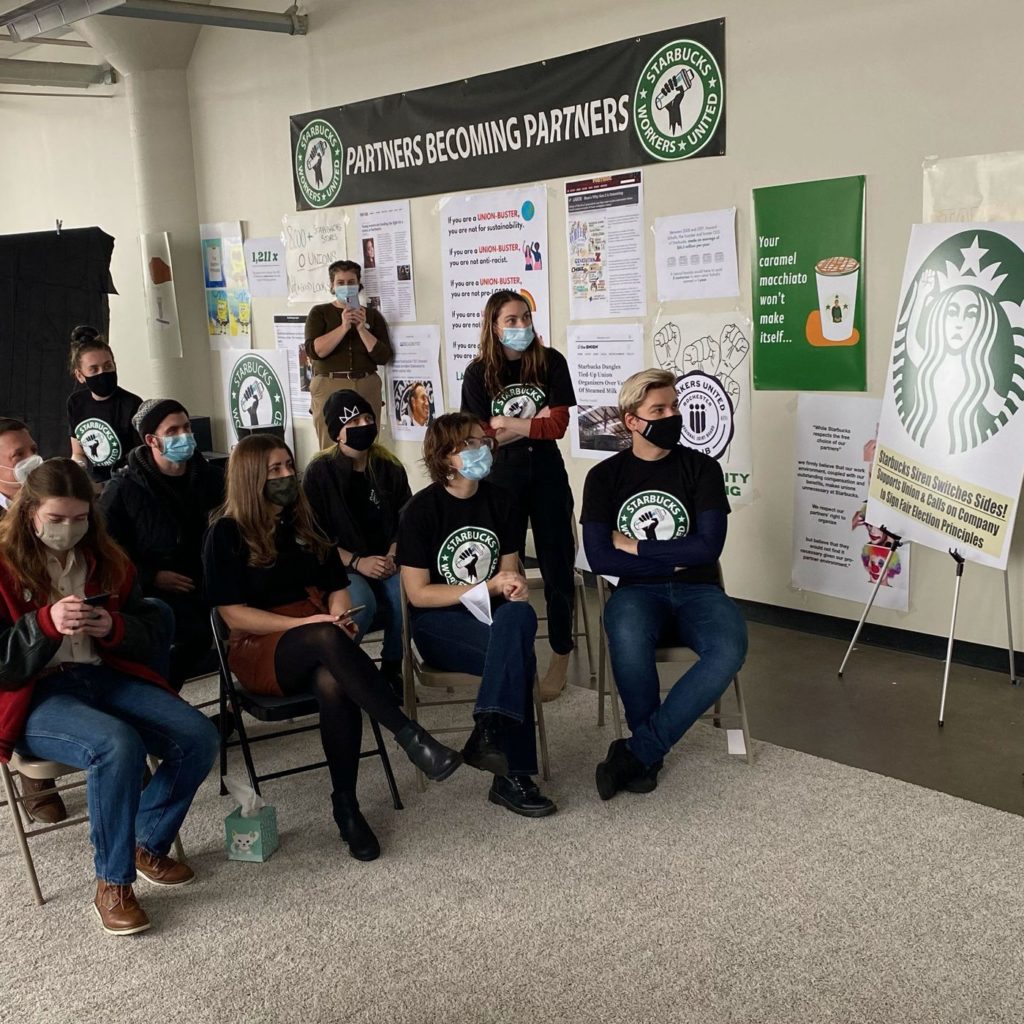Starbucks Union

It seems we have a qualified victory in the battle to unionize three Buffalo-area Starbucks stores. One has clearly voted for the union, one is unclear, and one seems to have voted against but under enough intimidation from the company that it wouldn’t surprise me if the NLRB throws it out and orders a new election. Some info:
Employees at a Buffalo-area Starbucks store have voted to form a union, making it the only one of the nearly 9,000 company-owned stores in the United States to be organized and notching an important symbolic victory for labor at a time when workers across the country are expressing frustration with wages and working conditions.
The result, announced on Thursday by the National Labor Relations Board, represents a major challenge to the labor model at the giant coffee retailer, which has argued that its workers enjoy some of the best wages and benefits in the retail and restaurant industry and don’t need a union.
The union was leading in an election at another store, but by a margin smaller than the number of ballots the union was seeking to disqualify through challenges. The challenges must be resolved by the labor agency’s regional director in the coming days or weeks before there is a result. Workers at a third store voted against unionizing, according to the board, though a union lawyer contended that some ballots had been delivered to the agency and not counted.
“Although it’s a small number of workers, the result has huge symbolic importance and symbols are important when it comes to union organizing,” John Logan, a labor studies professor at San Francisco State University, said in an email. “Workers who want to form a union in the United States are forced to take a considerable amount of risk, and it helps if they can see others who have taken that risk and it has paid off.”
This is largely symbolic at this point. But organizing the fast food and fast food-adjacent world has to start somewhere and this is a good place for it. We know that there are other Starbucks stores looking to unionize too. Moreover, this sort of worker–often with a significant level of education and imbibing in the liberal hip culture that the company promotes–is easier to organize than a lot of traditional working class jobs at this point. So I’m not really surprised by the result. Let’s hope it leads to more. Let’s also be clear: the level of intimidation Starbucks engaged in is both typical and should be completely unacceptable:
Starbucks responded to the union campaign with a sense of urgency. Throughout the fall, out-of-town managers and executives — even Ms. Williams — converged on stores in Buffalo, where they questioned employees about operational challenges and assisted in menial tasks like cleaning bathrooms.
In a video of a meeting in September viewed by The New York Times, a district manager from Arizona told co-workers that the company had asked her to go to Buffalo to help “save it” from unionization.
Several workers who support the union said they found the presence of these officials intimidating and, at times, surreal. They also complained that Starbucks had temporarily closed certain stores in the area, which they found disruptive, and said Starbucks had excessively added staff in at least one of the three stores that held elections. The workers said this had diluted support for unionization at the store.
“As of today we’ve done it in spite of everything that the company has thrown at us and we all know it has been an extensive anti-union campaign by Starbucks corporate,” Michelle Eisen, a barista at the Buffalo location that unionized who also helped lead the campaign, said at the news conference.
Former National Labor Relations Board officials have said that these actions by the company could be interpreted as undermining the “laboratory conditions” that are supposed to prevail during union elections and that they could serve as grounds for throwing out a result. Workers involved in the union campaign and a union lawyer indicated that they might challenge the result at the store where workers voted down the union.
A regional director of the labor board recently overturned a union election at an Amazon warehouse in Alabama on similar grounds.
This is why I suspect the election will be thrown out at the store that lost and the other one that is unclear at this time.


